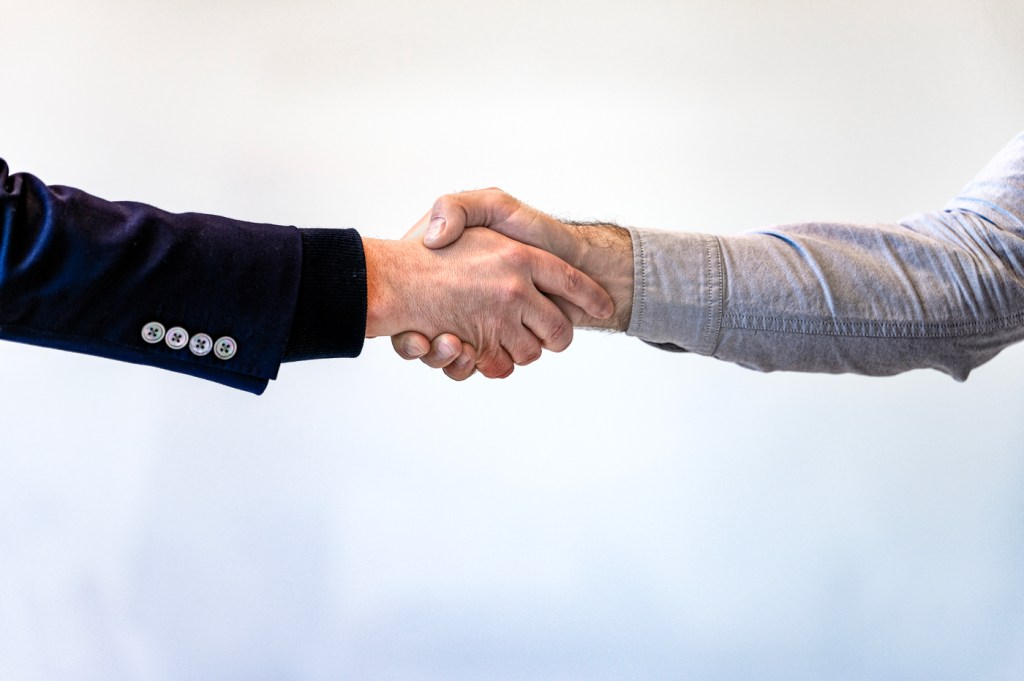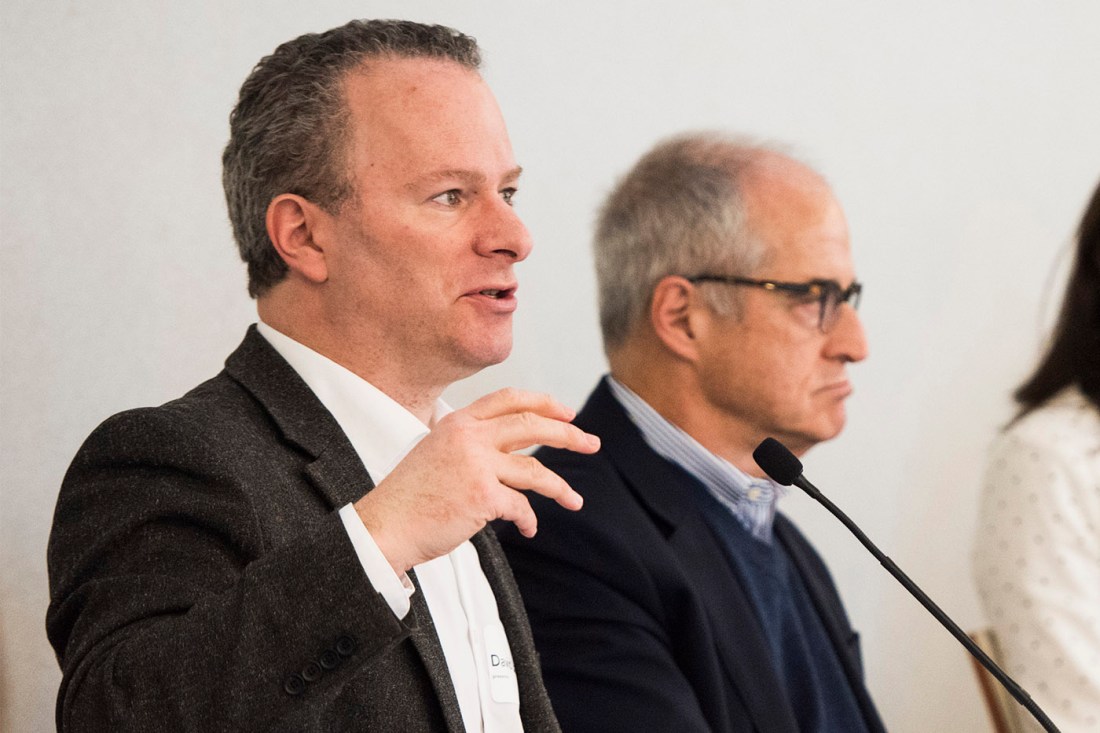‘We owe it to each other.’ How to listen to opposing points of view in an age of political divide

In an age of political divisiveness, finding common ground means creating opportunities to listen to each other’s stories and points of view — but it does not mean banning politics from social media platforms.
That was the message delivered Tuesday evening by three panelists, including David Lazer, Northeastern distinguished professor of political science and computer science, during the second discussion in a series organized by nine Massachusetts colleges called “Dialogue and Action in an Age of Divides.”
“I think in a democracy you need to talk about politics. You need to sometimes talk vigorously and angrily about politics,” Lazer said.
Fears of disinformation and alienating divisiveness may keep people from connecting, but retreat is not the answer, he said. “We owe it to each other to talk and to listen. It’s very hard in the present moment.”

Lazer was joined on the panel by Danielle Allen, James Bryant Conant university professor and professor of government at Harvard University, and Alexandra Pineros-Shields, associate professor of the practice of racial equity at Brandeis University.
The discussion titled, “Coming Together Across Differences: Finding Common Ground Across Identities and Political Divides,” was moderated by Layli Maparyan, executive director of Wellesley Centers for Women and professor of Africana studies at Wellesley College.
Asked whether the media was to blame for encouraging divisiveness, Allen said while she doesn’t want to just blame the media, “people learned many years ago that two things sell especially well — anger and sex. For that reason, our media sphere is full of those two things.”
“So the question in some sense is, ‘how can we, the public, communicate an appetite for stories that really do focus on the history of mutual aid?’” Allen asked.
The history of the world is a history of cooperation, but that is often overlooked, Pineros-Shields said.
“Communities cannot survive if they don’t actually cooperate with each other. But that is not the history that is taught primarily, but rather the history of conflicts,” Pineros-Shields said.
She said that as a member of a community group working with the Lynn (Massachusetts) Police Department in the past, she learned to rely on “radical vulnerability” in coming to terms with implicit bias — and on the importance of spending “a lot of time getting to know each other, hearing each other’s stories.”
“It is really essential to build trust,” Pineros-Shields said, adding that every meeting with police included at least half hour of “what we call one to ones.”
Working together to create change requires a kind of muscle that is built up by overcoming challenges, she said.
“Every time we came up against another muscle, we had to go back to the drawing board. And that built the muscle of solidarity,” Pineros-Shields said.
Featured Posts
Allen, whose paternal grandfather started one of the first NAACP chapters in northern Florida in the 1940s, had a very personal story of political division.
In 1992, her aunt ran for Congress in California with the left-leaning Peace and Freedom Party, while her father was running for U.S. Senate from Southern California as a Reagan Republican.
“They used to have the most intense arguments and debates over our dinner table,” Allen said.
In addition to remembering those “incredible arguments,” she said, “I also learned, though, about the practice of engaging across differences, real differences of perspective. A couple of things were very clear to me. Although they argued fiercely, they never ever broke the chains of love. They held sacred the dignity of that human being in front of them.
“So you’re probably thinking, ‘Danielle, how on earth does this relate to today? And, by the way Danielle, those were your family members. So of course they have that bond, that sense of commitment to each other’s humanity.’”
That sense of humanity has crossed political lines in recent years to form a super majority of voters — more than two-thirds of voters — to restore voting rights in Florida to people who have completed serving felony sentences, Allen said.
And about four years ago 75% of voters in Mississippi voted on a new state flag that dispensed with Confederate emblems, she said.
People are turning common purpose into concrete results “by building relationships, by forming coalitions,” she said, “by really doing that work of keeping that core commitment to human dignity front and center.”
Ideas expressed and disinformation shared on social media don’t always respect human dignity.
It’s important that operators of social media platforms don’t react by shutting down political speech to avoid dealing with difficult issues, Lazer said.
“Social media, for all their problems, have also been tools for protest” and political mobilization, said Lazer, who is co-author of a new publication titled “Black Networks Matter.”
He said platforms such as town halls are powerful tools in helping people reflect on each other’s experiences instead of seeing each other as some type of caricature.
“Dialogue and Action in An Age of Divides” was organized by the provosts of Northeastern, MIT, Harvard, UMass, Brandeis, Tufts, Boston University, Boston College and Wellesley.
The panel discussions in the series feature faculty experts from the schools and focus on modeling constructive dialogue around difficult issues.










